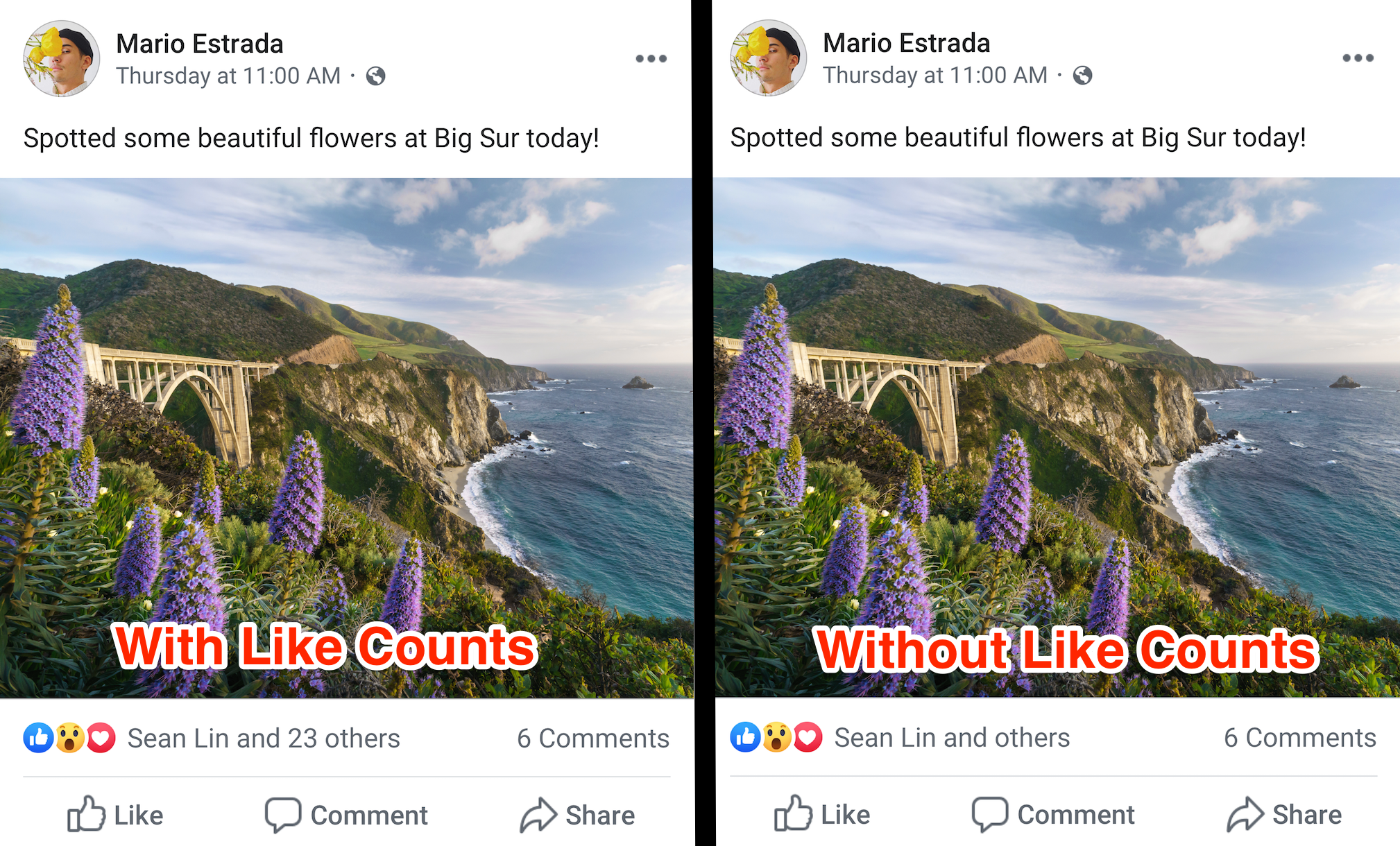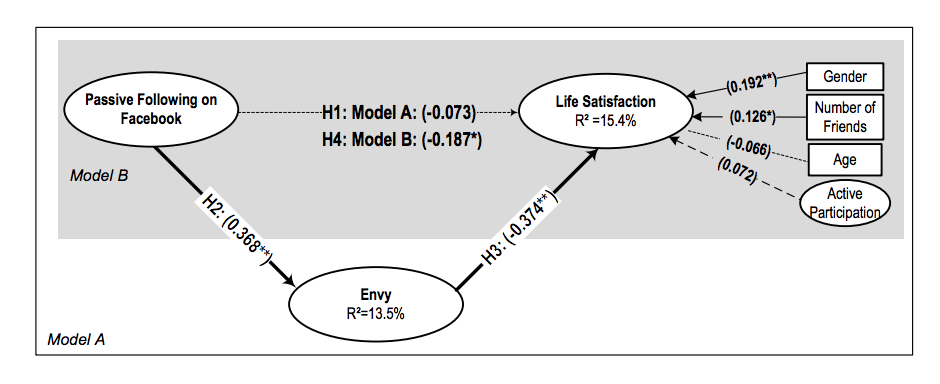Social Media
Facebook tries hiding Like counts to fight envy

If their post has lots of Likes, you feel jealous. If your post doesn’t get enough Likes, you feel embarassed. And when you just chase Likes, you distort your life seeking moments that score them, or censor it fearing you won’t look popular without them.
That’s why Facebook is officially starting to hide Like counts on posts, first in Australia starting tomorrow, September 27th. A post’s author can still see the count, but it’s hidden from everyone else who will only be able to see who but now how many people gave a thumbs-up or other reaction.

The launch of the hidden Like counts test makes available what we reported Facebook was privately prototyping earlier this month, as spotted in its Android code by reverse engineering master Jane Manchun Wong. The test will run in parallel to Instagram’s own hidden Like count test we also scooped that first tested in Canada in April before expanding to six more countries in July.
“We are running a limited test where like, reaction, and video view counts are made private across Facebook” a Facebook spokesperson tells me. “We will gather feedback to understand whether this change will improve people’s experiences.” If the test improves people’s sense of well-being without tanking user engagement, it could expand to more countries or even roll out to everyone.
Facebook’s goal here is to make people comfortable expressing themselves. It wants users to focus on the quality of what they share and how it connects them with people they care about, not just the number of people who hit the thumbs-up.

As you can see, comment counts will still be displayed, as will the most common types of reactions left on a post plus the faces and names of some people who Liked it.
But without a big number on friends’ posts that could make users feel insignificant, or a low number on their own posts announcing their poor reception, users might feel more carefree on Facebook. The removal could also reduce herd mentality, encouraging users to decide for themselves if they enjoyed a post rather than just blindly clicking to concur with everyone else.
As I wrote about 2 years ago, a collection of studies identify the harm Facebook can do. They found that while chatting with friends and comment threads on Facebook made people feel better, passively scrolling and Liking could lead to envy spiraling and declines in perception of well-being. Users would compare their seemingly boring life to the well-Liked glamorous moments shared by friends or celebrities and conclude they were lesser.

For example, Krasanova et al discovered that 20% of the envy-inducing moments users experienced in life were on Facebook, and that “intensity of passive following is likely to reduce users’ life satisfaction in the long-run, as it triggers upward social comparison and invidious emotions.”
One concern is that Facebook Pages that have large followings and often get more Likes than individual users’ posts could miss out on extra engagement and reach without that herd mentality.
But if Facebook wants to build a social network people continue using for another 15 years, it has to put their well-being first — above brands, above engagement, and above ad dollars.
-

 Entertainment7 days ago
Entertainment7 days agoIf TikTok is banned in the U.S., this is what it will look like for everyone else
-

 Entertainment6 days ago
Entertainment6 days ago‘Night Call’ review: A bad day on the job makes for a superb action movie
-

 Entertainment6 days ago
Entertainment6 days agoHow ‘Grand Theft Hamlet’ evolved from lockdown escape to Shakespearean success
-

 Entertainment7 days ago
Entertainment7 days ago‘September 5’ review: a blinkered, noncommittal thriller about an Olympic hostage crisis
-

 Entertainment7 days ago
Entertainment7 days ago‘Back in Action’ review: Cameron Diaz and Jamie Foxx team up for Gen X action-comedy
-

 Entertainment7 days ago
Entertainment7 days ago‘One of Them Days’ review: Keke Palmer and SZA are friendship goals
-

 Entertainment3 days ago
Entertainment3 days ago‘The Brutalist’ AI backlash, explained
-

 Entertainment3 days ago
Entertainment3 days agoOnePlus 13 review: A great option if you’re sick of the usual flagships
















